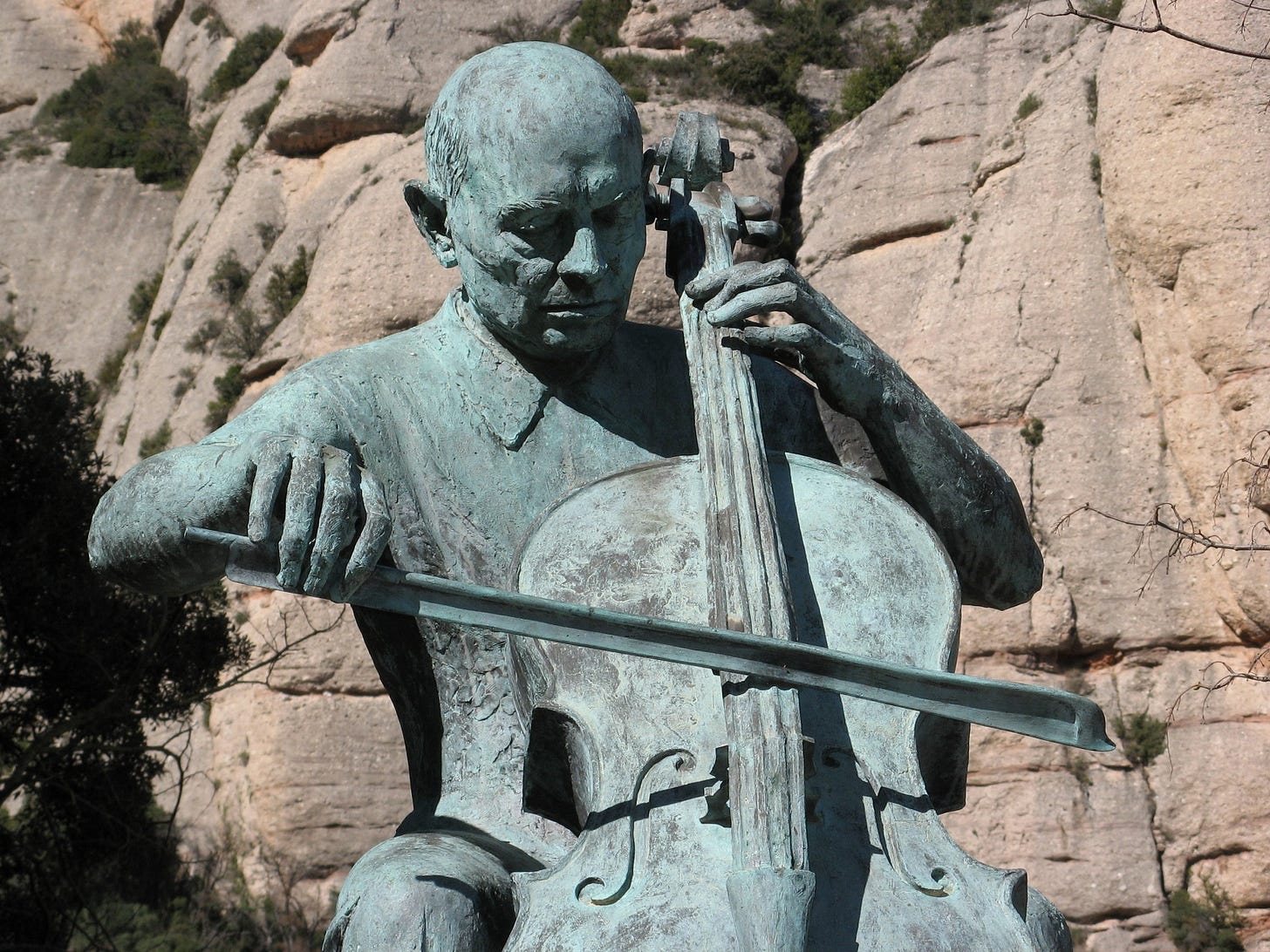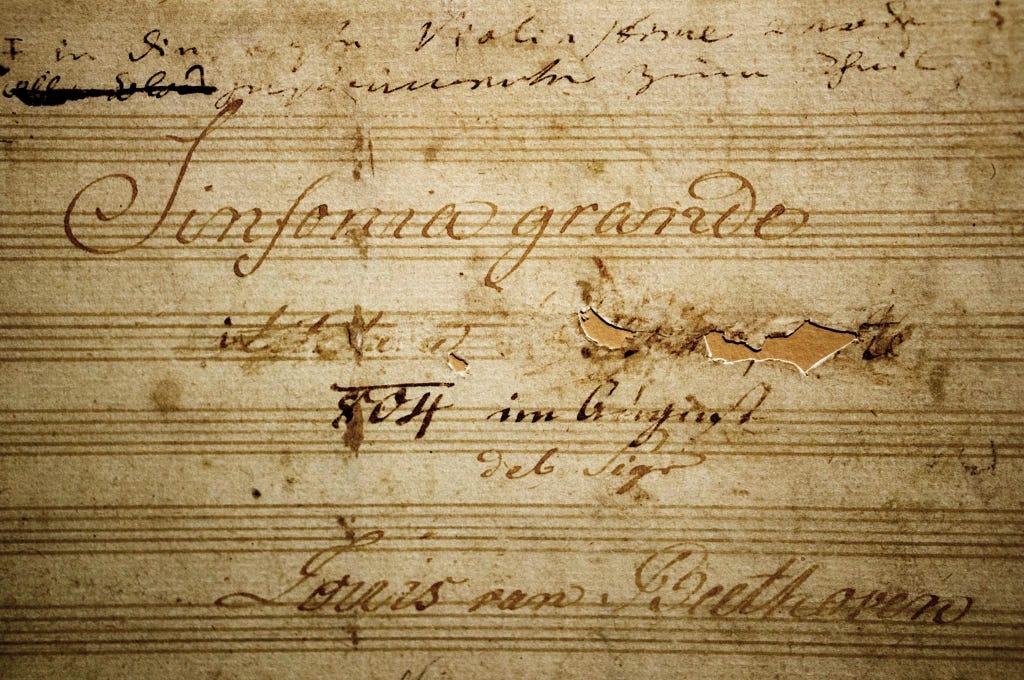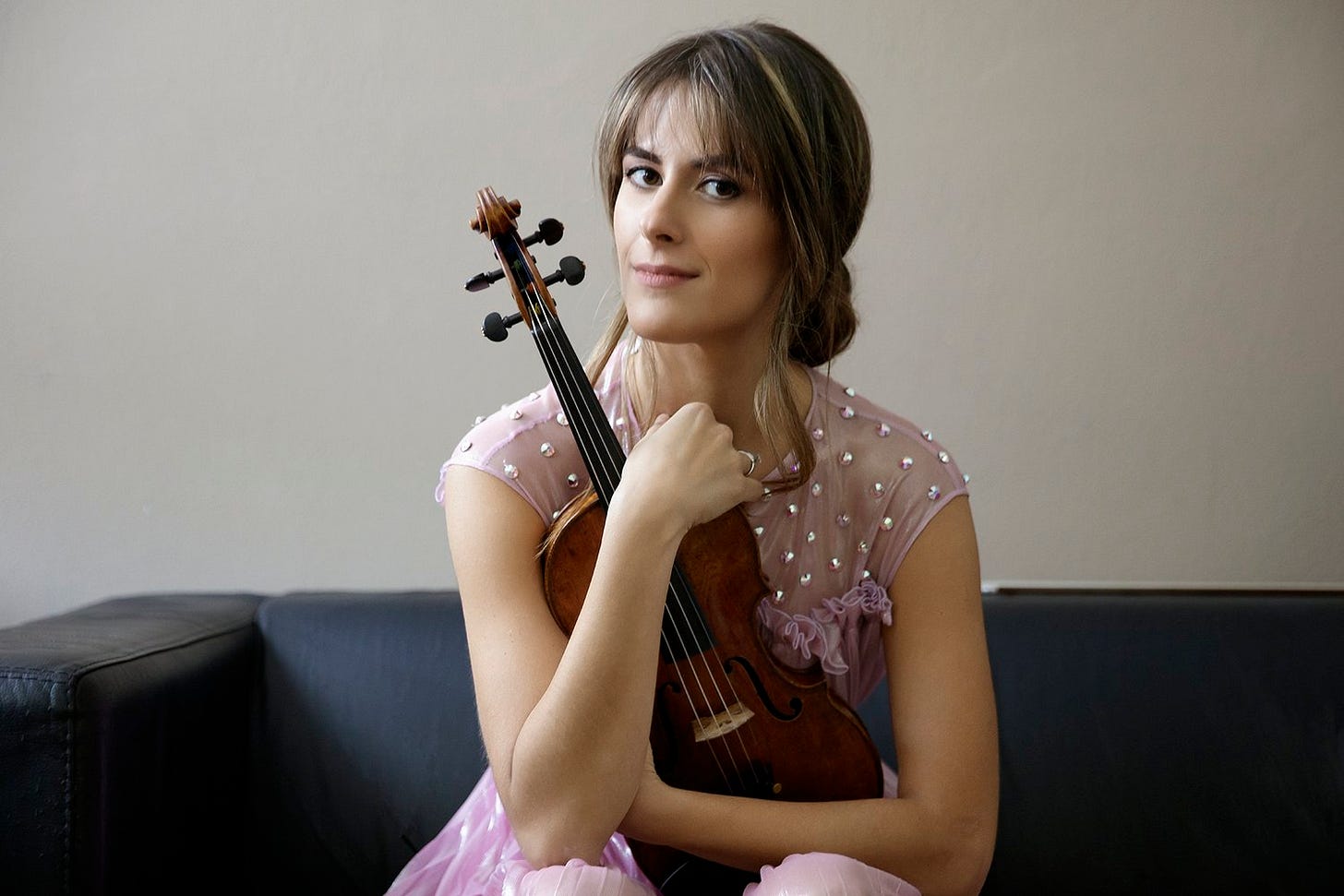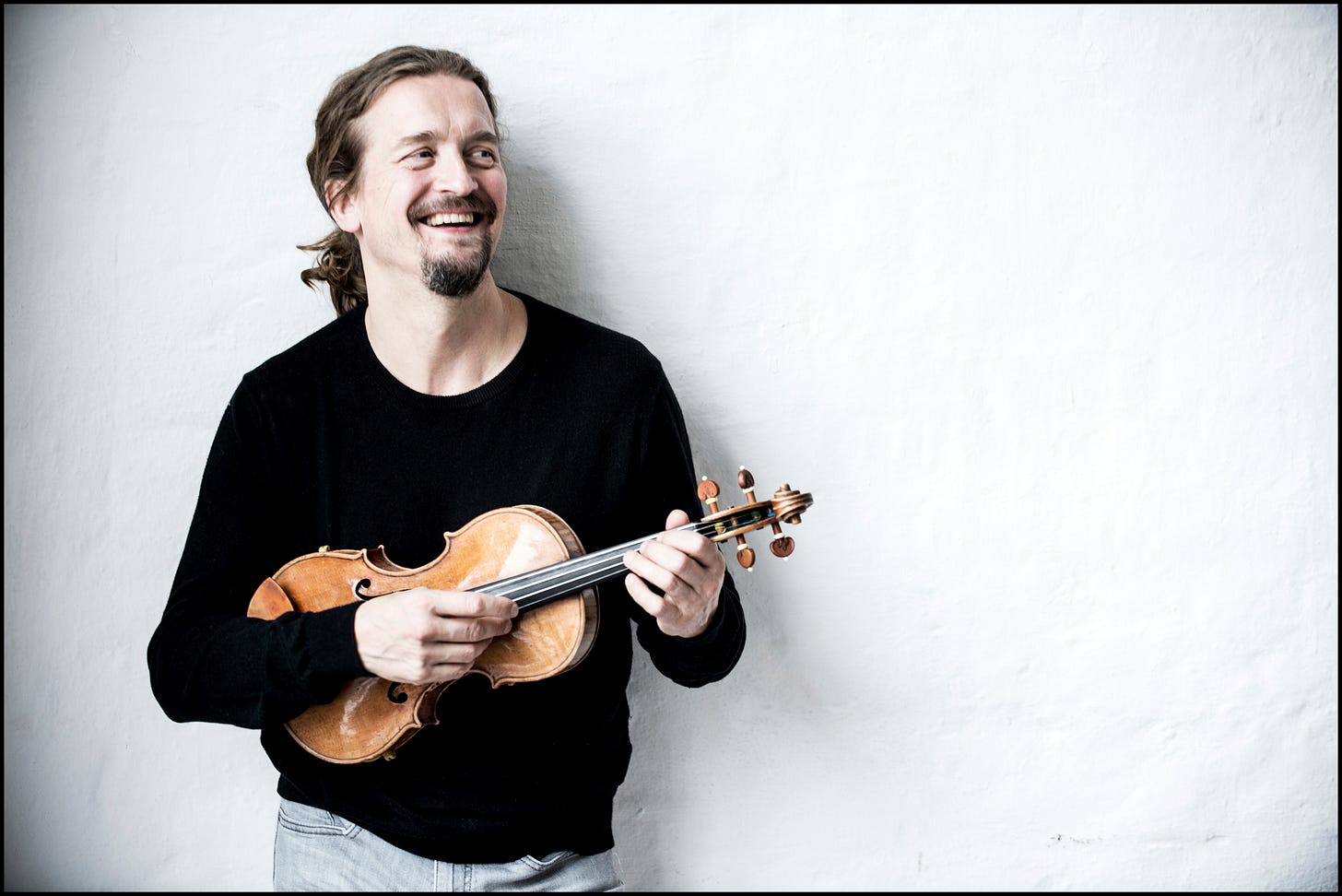
The other day I got a press release from the St. Louis Symphony Orchestra which began as follows:
Internationally acclaimed violinist Francesca Dego will make her debut with the St. Louis Symphony Orchestra on April 11–13, performing Johannes Brahms’ Violin Concerto with conductor John Storgårds. The program also includes Jean Sibelius’ Lemminkäinen Suite. Dego replaces violinist Christian Tetzlaff, who was scheduled to perform the same concerto on the program.
It's not unusual to have last-minute substitutions of a guest conductor or soloist. Typically it involves an illness or accident. Sometimes there have been visa issues, since the SLSO hosts performers from around the world. Occasionally there’s an unexpected scheduling conflict. Whatever the cause, the press release normally provides some enlightenment.
This time, however, the enlightenment consisted of this single sentence: “In a statement from his management, Tetzlaff ‘looks forward to performing with the St. Louis Symphony Orchestra in the future.’” Which might just indicate that there’s a longer story involved.
In this case, that story wasn’t hard to find since it had been reported in the New York Times in an article headlined: “Alarmed by Trump, a Renowned German Violinist Boycotts the U.S.” The article goes on to describe the noted German violinist’s anger at “President Trump’s embrace of Russia, the dizzying cuts to the federal work force, and changes in policies affecting transgender Americans.”
“Music sends messages about the human condition,” Tetzlaff told the NYT, “about empathy and the heart. We have to uphold these ideals.”

Musicians and composers have not, historically, been reluctant to express their displeasure at political developments that they regarded as immoral. Beethoven’s anger at Napoleon for abandoning his republican ideals and declaring himself emperor is probably one of the more famous examples. The diaspora of composers and musicians from both Fascist Germany and Communist Russia has been well documented.
The first thing that came to my mind after reading the Times article, however, was the heroic self-imposed exile of the legendary Spanish cellist Pablo Casals. Appalled at the barbarity of the Franco regime and its alliance with Nazi Germany, Casals emigrated to Prades in southern France. When the end of World War II failed to bring about the end of Spanish Fascism as well, Casals vowed never to return to his native land until Franco was gone. An event which, sadly, did not take place until two years after Casals’ death.
Are we now having a Casals Moment? As the late historian Douglas W. Foard wrote in an article for the Library of Congress:
He and thousands like him had understood the Spanish Civil War as a struggle against the beast called "Fascism." That it lurked in Spain there could be no doubt. The Fascist movement there had styled itself the "Falange" and like its counterparts elsewhere in Europe had extolled political violence, imperialism, militarism, dictatorship, and totalitarianism.
That has a sadly familiar ring, does it not?





